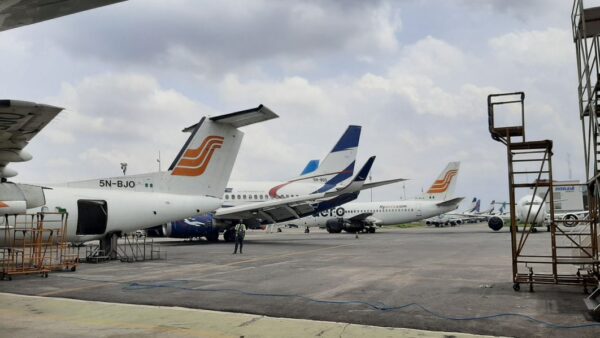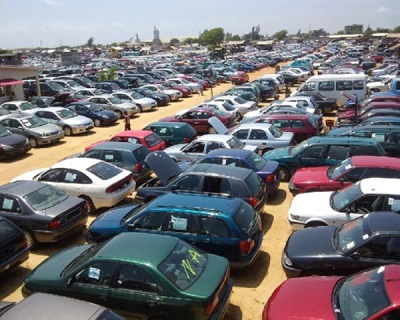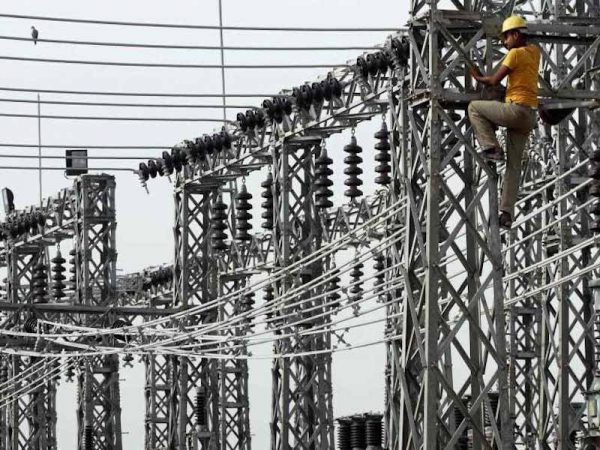Politicians, Bank Officials Plunder N300million CBN Agriculture Credit

*As shipping lines, terminal operators stifle ICDs in Nigeria
*No official complaints from ICDs
*Shipping lines introduce fresh charges
By Jude Odo, Enugu & Kenneth Jukpor
Over N300 million Central Bank of Nigeria (CBN) agriculture credit meant for small scale farmers in Enugu state to boost commercial rice production has been plundered by some politicians in connivance with some officials of Bank of Agriculture(BOA) in the state. This development has stalled the production of rice in commercial quantity in the state.
MMS Plus gathered that BOA gave out this sum as loan facility to politicians who diverted the funds to other uses after collecting a non-refundable fee of N3,000 each from over five hundred farmers in the states.
More worrisome is the fact that the BOA which gave out the loan to the beneficiaries is not doing anything positive to recover the loan, a source noted.
The Enugu State Government in collaboration with CBN had initiated a programme titled “Anchor Borrower’s Programme” (ABP) last year to increase rice production in the state.
MMS Plus investigations revealed that the objectives of the programme includes: Creation of economic linkage between small holder rice farmers and reputable large-scale rice processors with a view to increasing rice output and significantly improving capacity utilization of processors; improve bank financing to rice production, create new generation of rice farmers and entrepreneurs, and assist small holder farmers grow from subsistence to commercial production level, among others.
The loan which was given to the farmers on 9 percent interest rate was also to provide farm inputs in cash and kinds to small holder rice farmers, including fertilizers, insecticides, rice seeds in order to stabilize rice supply to agro-processor.
On the modalities of accessing the loan, our source disclosed that “the farmer must belong to a registered co-operative society which must have an account with Bank of Agriculture. “Also, an individual member of the co-operative society must also open an account with the Bank of Agriculture or any other commercial bank approved by Central Bank of Nigeria.
Our sources from the Federal Ministry of Agriculture and Rural Development one of the stakeholders of the programme, and BOA disclosed that the beneficiaries of the loan were politicians in the state who “cloned” their relatives and political associates as small holder farmers and members of co-operative societies in order to access the loan.
When our reporter visited BOA, Enugu Zonal Office to ascertain the position of the Bank on the defaulters, two managers of the loan confirmed that over N300 million borrowed by farmers in Enugu has not been repaid.
One of the female managers told our reporter that “it is the bank authorities that will determine how to recover the loan”.
The overall manager of the loan, Chinwe Okafor when asked by our reporter on what the bank was doing to recover the loan, has this to say: “Please, you must apply to the zonal manager, Bank of Agriculture Enugu officially to be able to ascertain what the bank is doing to the loan defaulters.
A farmer who is interested in the programme (Anchor Borrowers Programme) and did not want his name in print told MMS Plus that “some high profile members of the society who camouflaged as farmers were among those who plundered the 300million loan”.
He explained that the state government had good intention to boost rice production in the state but regretted that “some bad eggs in the society are the clog on the wheel of agricultural production in the state”.
It was further disclosed to MMS Plus that the only rice processor company for the Anchor Programme is owned by a powerful Catholic Priest from Nsukka Diocese.
MMS Plus learnt that the Programme was packaged in a way that after rice production by the farmers, the rice would be sold to the processing company at the prevailing market price, while the company will then process and sell to the public.
Meanwhile, the concessionaires of the Inland Container Depots(ICDs) also called Dry Port projects in the country gear up to begin operations, some ICD managers have expressed worry over what can be described as an ambiance of unhealthy fiscal struggle created by shipping lines and terminal operators.
While the introduction of ICDs in the country is set to launch a new phase of development in the nation’s transportation sector, which should have a ripple effect on the use of railways, terminal operators and shipping lines have been said to be grieving over their potential losses and already making plans to stifle the use of ICDs.
One of the concessionaires of the an ICD in the Northern part of the country who pleaded anonymity, told MMS Plus that the shipping lines and terminal operators pose great danger to the success of the dry ports in the country.
“What are the shipping lines and terminal operators doing to support the use of dry ports? Absolutely nothing! Shipping lines and terminal operators are not cooperating because they see the success of ICDs to be detrimental to their operations. The truth is that the successful take-off of dry port operations in this country would mean that the several issues of delays leading to exorbitant fees as demurrage would come to an end”, the Port Manager said.
According to him, most terminal operators as set to maintain the same charges for ICDs with those levied for regular imports. Some of these charges include handling charges, dock charges and storage charges.
“Terminal operators and shipping lines are already complaining that ICDs shouldn’t kick-off because of the state of the roads and the non-functionality of the nation’s railway. However, these are lame excuses because they don’t want the dry ports to be successful. Take a look at APMT for instance, they are set to collect the same charges from ICDs as they collect from agents who import to Lagos; whereas an ICD should only be charged the container handling fees. Containers should get to their destination before we begin to collect storage charges” he explained.
When contacted on this issue, the Director, Compliance, Monitoring and Inspection at the Nigerian Shippers’ Council (NSC), Chief Cajetan Agu posited that the Council was yet to receive an official complaint from any dry port operator.
However, he explained that cargoes destined for dry ports would not be subjected to frivolous charges that would make the use of dry ports too expensive or cumbersome.
On his part, the President of Shippers Association Lagos State (SALS) Rev. Jonathan Nicol has admonished dry port operators to be efficient and make efforts to deliver quality services to shippers.
“Speaking on behalf of shippers, I can assure you that we wouldn’t tolerate inefficiency from dry port operators, terminal operators or shipping lines anymore. This only seems to be an excuse. However, Shippers’ Council should be able to clarify this and also ascertain which party is responsible for certain delays leading to demurrage along the chain.” Nicol said.
Although Nicol didn’t allay fears of ICD operators, he explained that “any container going to the ICDs will not be placed on the terminals around seaports to incur certain charges. As soon as these containers come down from the ships, they should be routed to the ICDs. Therefore, those local terminal charges wouldn’t be paid at the Lagos ports but at the ICds. This is the right process to prevent double charges”
Meanwhile, some shipping lines have introduced new charges called “port additional charges” or “Nigerian port surcharge” in the Bill of Laden for imports.
The charge which ranges from N38,000 to N40,000 for 20ft containers and N76,0000 to N80,000 for 40ft containers have been frowned at by freight forwarders, shippers and the Nigerian Shippers Council.
Recall that Shippers’ Council is at the Supreme Court in a battle with shipping lines over similar arbitrary charges “Shipping Lines Agency Charges (SLAC)” which the Court of Appeal ruled to be illegal and ordered the shipping lines to refund.
Copyright MMS Plus.
All rights reserved. This material, and other digital content on this website, may not be reproduced, published, broadcast, rewritten or redistributed in whole or in part without prior express written permission from KINGS COMMUNICATIONS LIMITED.








